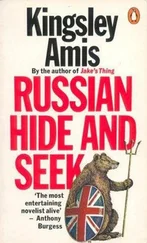Outside, the sunlight was intense. Hargreaves was standing in the shade, leaning against the corner timber of the barn and talking to a switchboard-operator called Hammond, who among other things was Parliamentary Under-Secretary to the Home Office. He gave Archer an inquisitive brown-eyed glance.
Archer went down the yard, at one side of which a dispatch-rider was dozing on a heap of straw, and crossed the cobbled street to the school building. He was thinking that the oddest thing about the major, or about himself, was that Raleigh’s behaviour was getting funnier all the time without arousing any laughter in him, Archer. Take Raleigh’s unconcealed delight whenever a new formation moved into the area and thus gave him another place to have a line run to and a telephone installed at, an amenity much resented by its beneficiaries, who would usually have spent most of the war too near a telephone and asked for nothing better than to remain incommunicable. The major had almost got drunk — he never did quite — on the strength of having foisted a special dispatch run and a wireless link upon a Displaced Persons Area Authority on the verge of closure. He seemed very near believing that stuff like this represented a serious and adequate role for a group that had provided half the communications of an Army Corps Group headquarters at war; he no longer excused the farce of having a Signal Office here at all by saying (untruly) that it kept the lads busy.
The same shift of attitude had taken place over his road. This boulevard through the camp area, too short to matter except in terms of the energy its construction absorbed and totally unnecessary anyway because of the dry summer, was about to be extended to other parts of the major’s tribal domain. Archer foresaw himself doing further stints of uninformed supervision, watching the hard-core and rubble go down, scouring the village for more wheelbarrows, driving out to the Engineers detachment to borrow yet more. Hitler had been funny too, but you had had to live in Valparaiso or somewhere to be able to laugh at him with conviction.
A flight of green-painted wooden steps led up the side of the school. Sergeant Doll was sitting on them, evidently improving his tan. With the affability of a pub landlord at the entry of a notable big spender, he called from a distance: ‘Good-morning to you, Mr Archer, and how are you this fine morning, sir?’
‘Oh, fed up,’ Archer said unguardedly.
‘Well, I’m not, sir, I don’t mind telling you.’ Doll made no move to get up and let Archer pass. ‘I’ve got plenty to eat and a decent bed and no work and nothing to spend my pay on and nobody to bother me. I’m winning, sir.’
‘Yes, you are, aren’t you?’ Archer, whose head was on a lower level than Doll’s, noticed that the other seemed to have no hairs whatsoever in his nose. This had the effect of making his moustache appear, if not actually false, at any rate an isolated phenomenon.
‘That was a nice little spot of bother at the old House of Commons last night, sir, wasn’t it? Of course that fellow Hargreaves, he’s unbalanced, isn’t he? A lot of these Reds are, you know. There must be something in that particular philosophy that sort of attracts such people. He must be a perfect little darling to have in the section, Master Hargreaves. I don’t know how you put up with him, sir, honestly I don’t. I’d have got rid of him many moons ago.’
‘Oh, he’s not as bad as all that. He is an educated man, after all.’
‘That makes it twenty times worse, sir, in my view. The corruption of the best is worst, I remember reading that somewhere. You’d be the one who’d know where it comes from, I expect, sir, wouldn’t you?’
Archer looked up sharply, but Doll’s eye was as bland as ever. ‘It’s Latin,’ Archer said. ‘I think.’
‘No doubt, sir. It’s really a pity Hargreaves made an exhibition of himself like that. Damaged his own case, I thought. Don’t you agree, sir?’
There was a pause while Archer recalled what was perhaps his sole intelligently self-interested action since joining the Company: putting a half-bottle of whisky on Doll’s desk last Christmas Eve. Ever since then the major, who tended to make a confidant of Doll, had found that his little surprises for Archer, in the shape of unheralded inspections of the Signal Office and the like, had an odd way of turning out not to be surprises after all. Rather late in the day, Archer was discovering a related principle, that the Army afforded unique scope for vindictiveness and that disagreement on apparently neutral matters often provoked such a reaction. He knew now that the Adjutant of the unit, who had of course gone to Potsdam with the others, had been that sort of person, selecting junior officers for troublesome duties less by caprice than by remembering who had most recently contested his opinion in the Mess, even if the subject had been literature or the weather. Sometimes a tendency to confuse names (surprising in so incessant an advocate of attention to detail) gave his selections an involuntary impartiality. After thinking about it for two years, Archer was nearly sure that a historic mission to collect a new type of line-transmission apparatus, entailing a journey three-quarters of the way across England and back in January and two successive nights in an unheated railway carriage, had fallen to his share because a second-lieutenant called Belcher, whom Archer hoped he did not in the least resemble, had a day or two earlier contradicted the Adjutant about Alice in Wonderland . But as the Adjutant got to know his subalterns better, such miscarriages of injustice had become rarer, not that this change had been to Archer’s advantage.
Although Archer had never made any progress in finding out what Doll was like, he judged it unwise to risk diminishing the effect of that half-bottle by saying what he really felt about Hargreaves’s outburst and thence, inevitably, what he felt about Doll’s politics. The major’s régime was doubtless drawing to a close, but its last days might well be marked by a fury of moral violence. Archer could not afford to irritate a friend at court, or anywhere else for that matter. He said decisively: ‘Yes, he did go too far, much too far. I think he feels a bit cheap about it today. You weren’t annoyed, I hope?’
‘Oh no, sir, my back is broad. As I say, all he did was help my side. That Government’ll fall soon, you mark my words. You were wanting to see the major, sir, were you?’
‘Yes, I thought I might look in.’
‘He’s got Captain Cleaver with him at the moment… Ah, here is the captain now.’
Doll got up as Cleaver emerged from the doorway and descended the steps. Archer grinned at him; Cleaver was the one officer in the detachment whom he regarded with nothing but contempt — groomed for stardom by the Adjutant and finally rejected on the grounds of technical incompetence: a tremendous achievement. He had got his captaincy, though. ‘Hallo, Wilf,’ Archer said.
‘Oh, hallo,’ Cleaver said, getting into his tone surprise at being so familiarly addressed. He carried gloves and a short cane and looked more than ever like a British officer as pictured in a German army manual. ‘The major’s waiting for you.’
The major was looking out of the window. A cow wearing a large floppy hat had just run along part of his road (known to everyone but himself as Raleigh’s Alley) and then turned off to flee up the lane past the wireless section’s billet. From somewhere near at hand a loud silly laugh had floated into the air. Whether this was associated with the cow or not, the two manifestations combined to pique and depress the major. They formed for him a symbol of anarchy mounting, of discipline and seriousness and purpose melting away. He felt there was some connection here with the chance of a Labour victory at the polls. Apart from a few negligible wild men like Hargreaves and Archer, he had never met anyone who confessed to having cast his proxy vote for Labour. On a recent visit to the Mess at Hildesfeld he had made a point of questioning his hosts on the matter and had heard the same story. His wife’s letters said that nobody knew of anybody in the whole town who was a Labour supporter and that everybody felt very sorry for poor Mr Jack, the Labour candidate. And yet the major was uneasy. Something monstrous and indefinable was growing in strength, something hostile to his accent and taste in clothes and modest directorship and ambitions for his sons and redbrick house at Purley with its back-garden tennis-court.
Читать дальше












